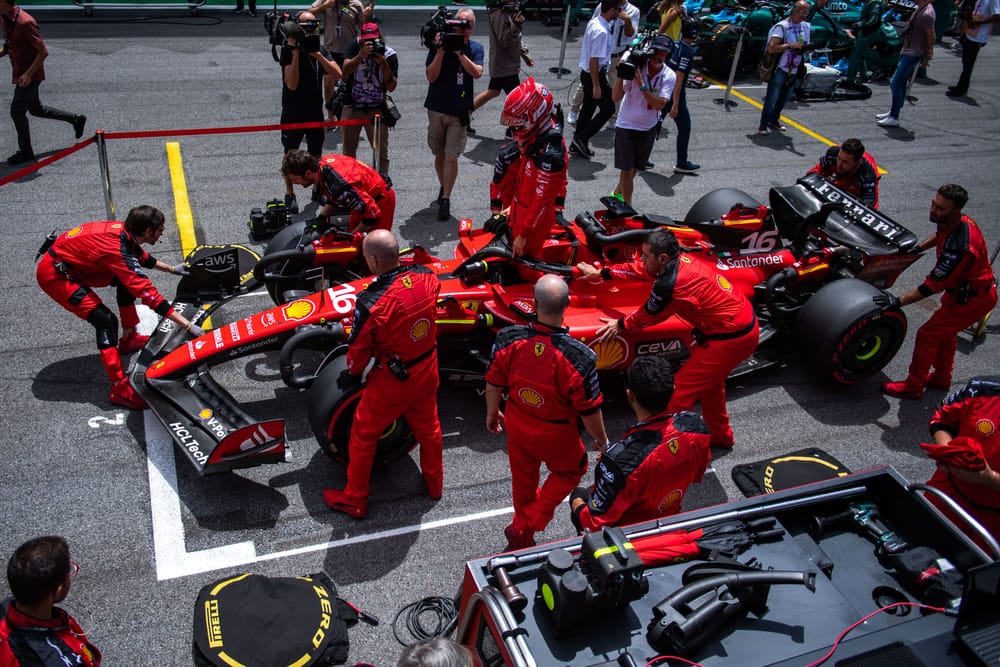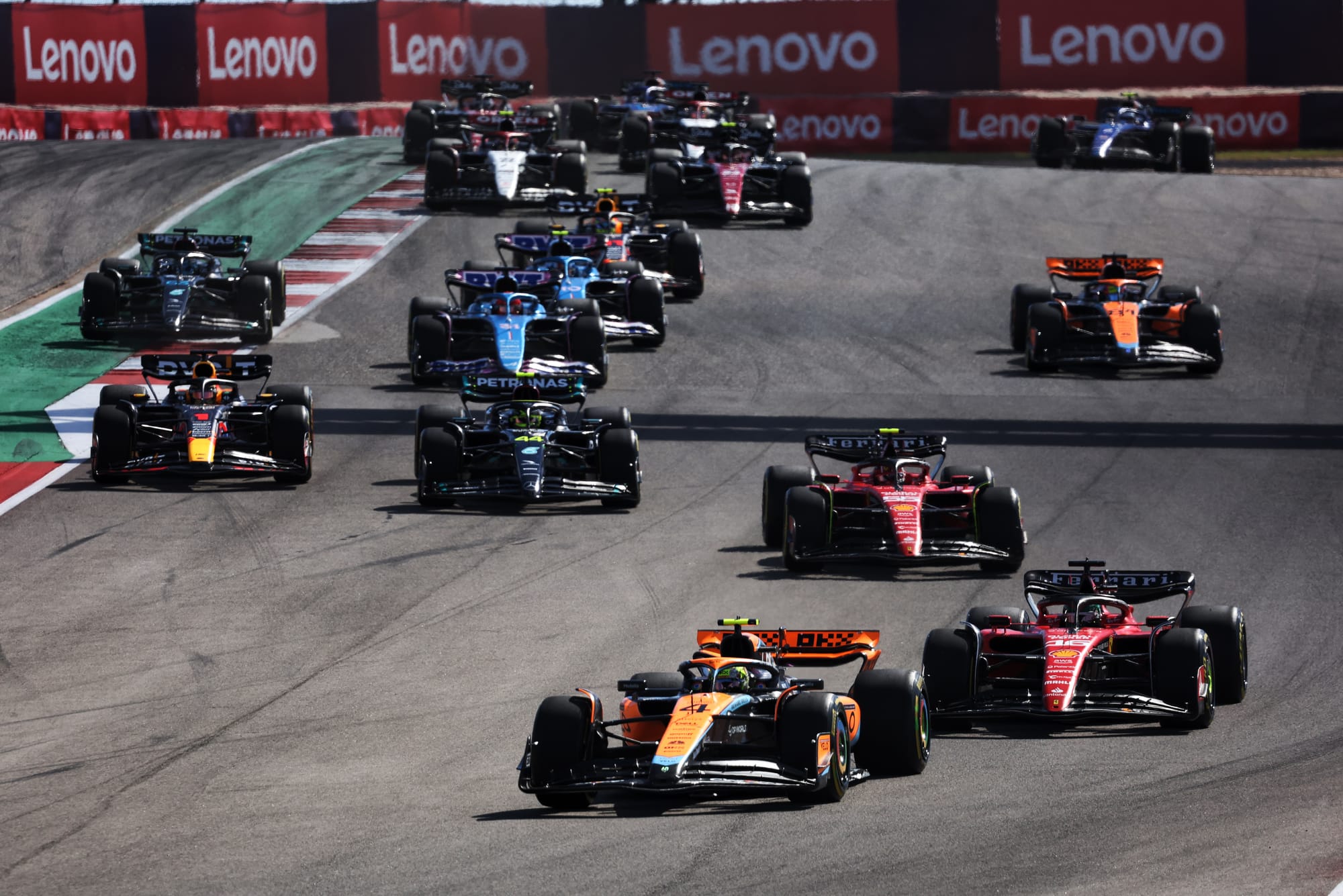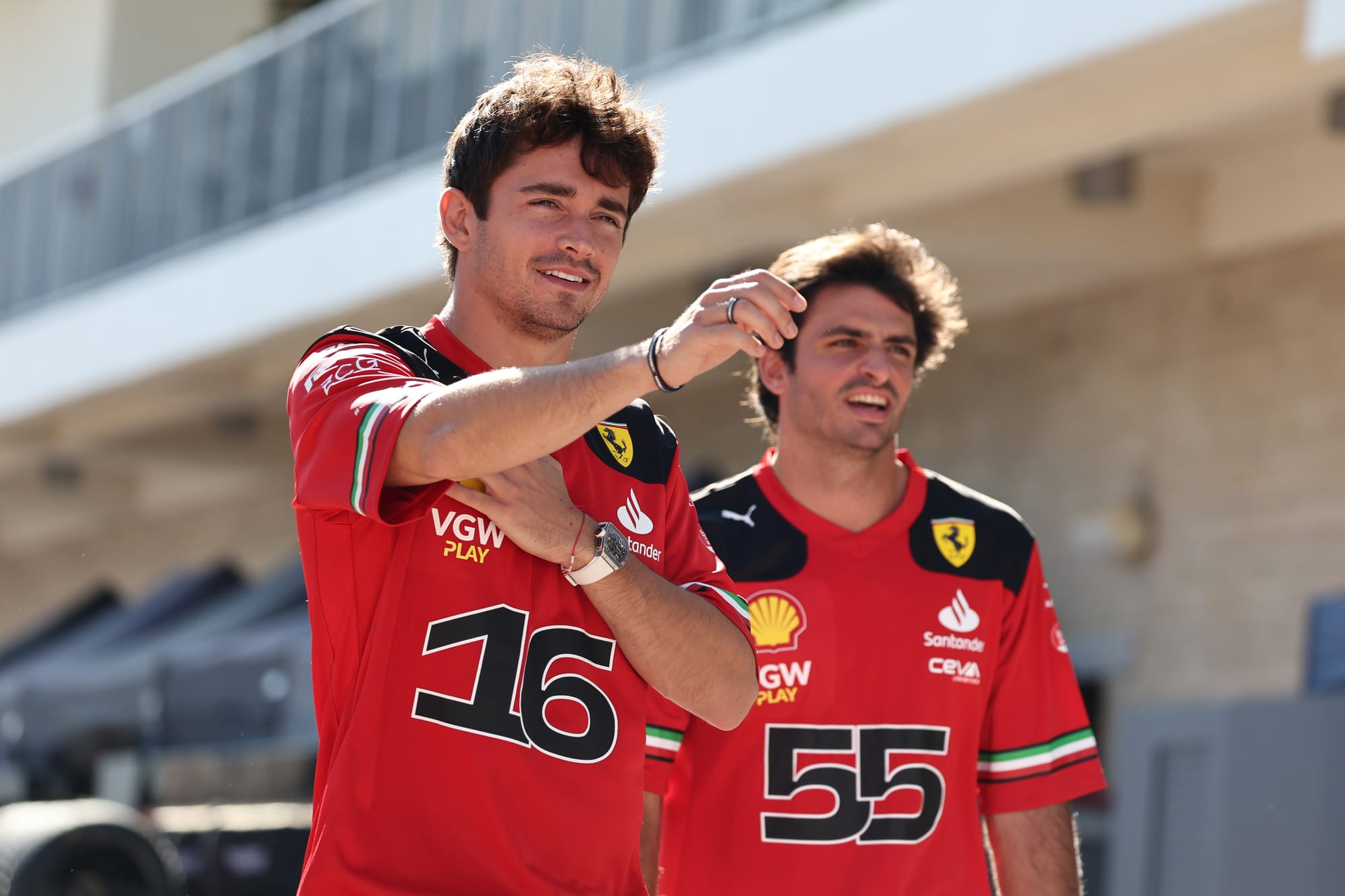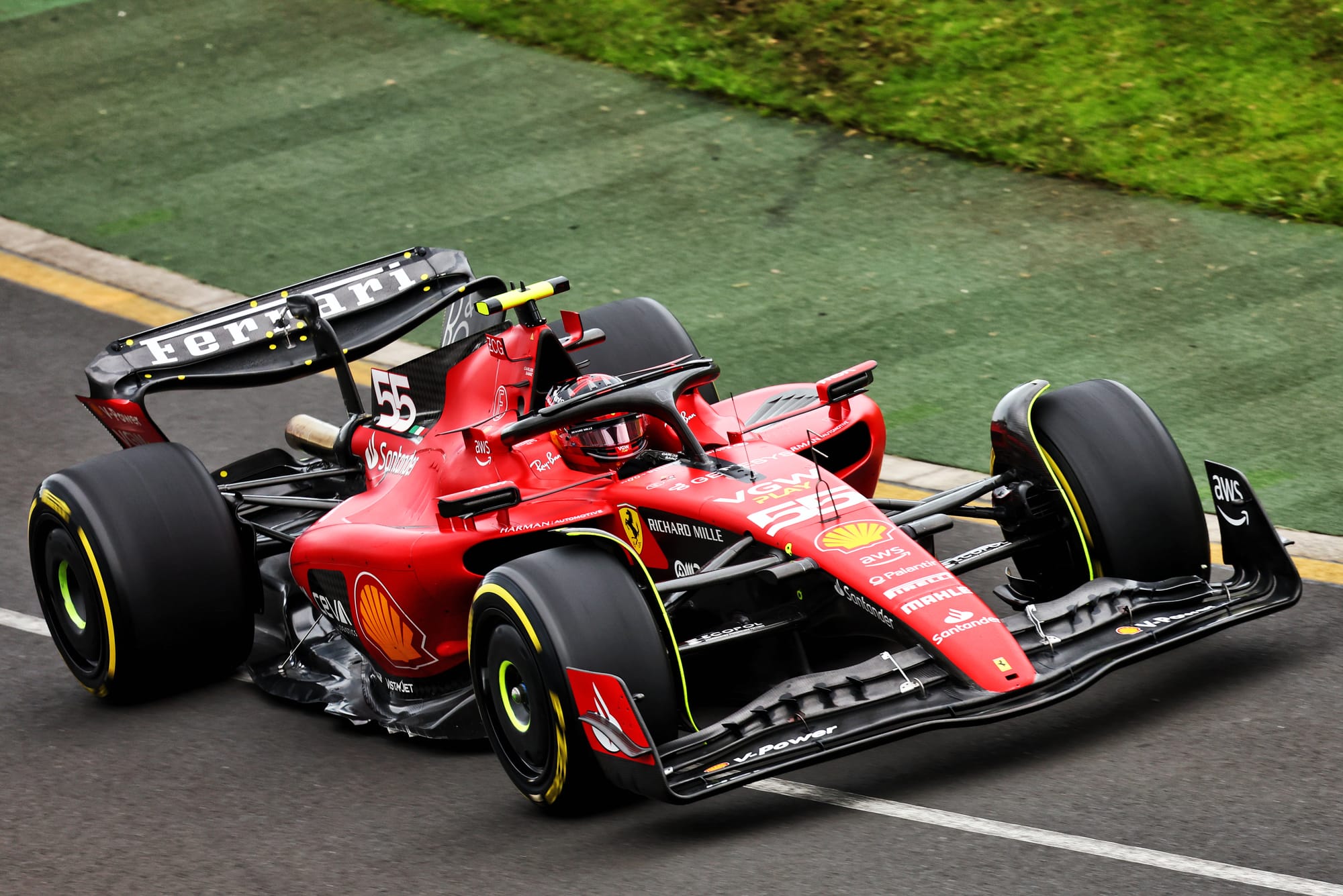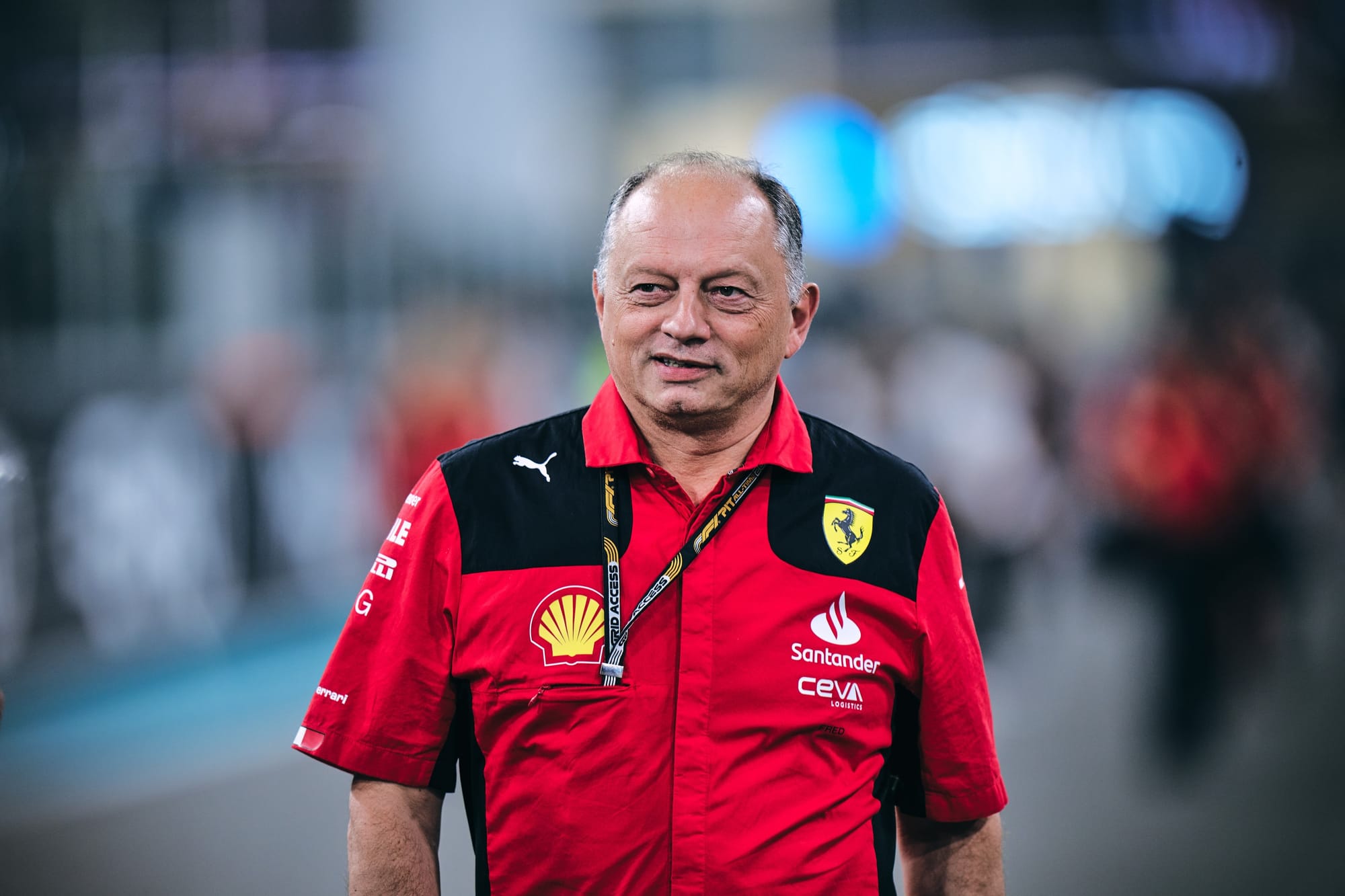Up Next


By basic measures, Ferrari has regressed once again in Formula 1. It did not win as many races in 2023 as in 2022, scored nowhere near as many points, and fell to third in the constructors’ championship.
These metrics would suggest that Ferrari has shot itself in the foot with its latest team overhaul. And would fit the prevailing narrative of last winter, given this disappointing season followed what many felt would just be the latest futile team boss switch in Maranello.
That was never meant to reflect poorly on incoming team principal Fred Vasseur. He is a respected, well-liked member of the F1 paddock. But replacing Mattia Binotto with the ex-Sauber boss felt like Ferrari once again failing to get to the root of the problem.
The fear was Vasseur would be undermined in kind - the next victim-in-waiting of unnecessary interference from Ferrari’s ultimate hierarchy. Especially as rumours emerged of CEO Benedetto Vigna wanting a more active role. This is someone who said finishing second would just be the first loser and just a few months into 2023 was rumoured in Italy to, indeed, be at odds with Vasseur.
But a year later, any such concerns and speculation seem to have been proved ill-founded. And though the headline numbers are worse, Vasseur’s Ferrari is on a better trajectory.
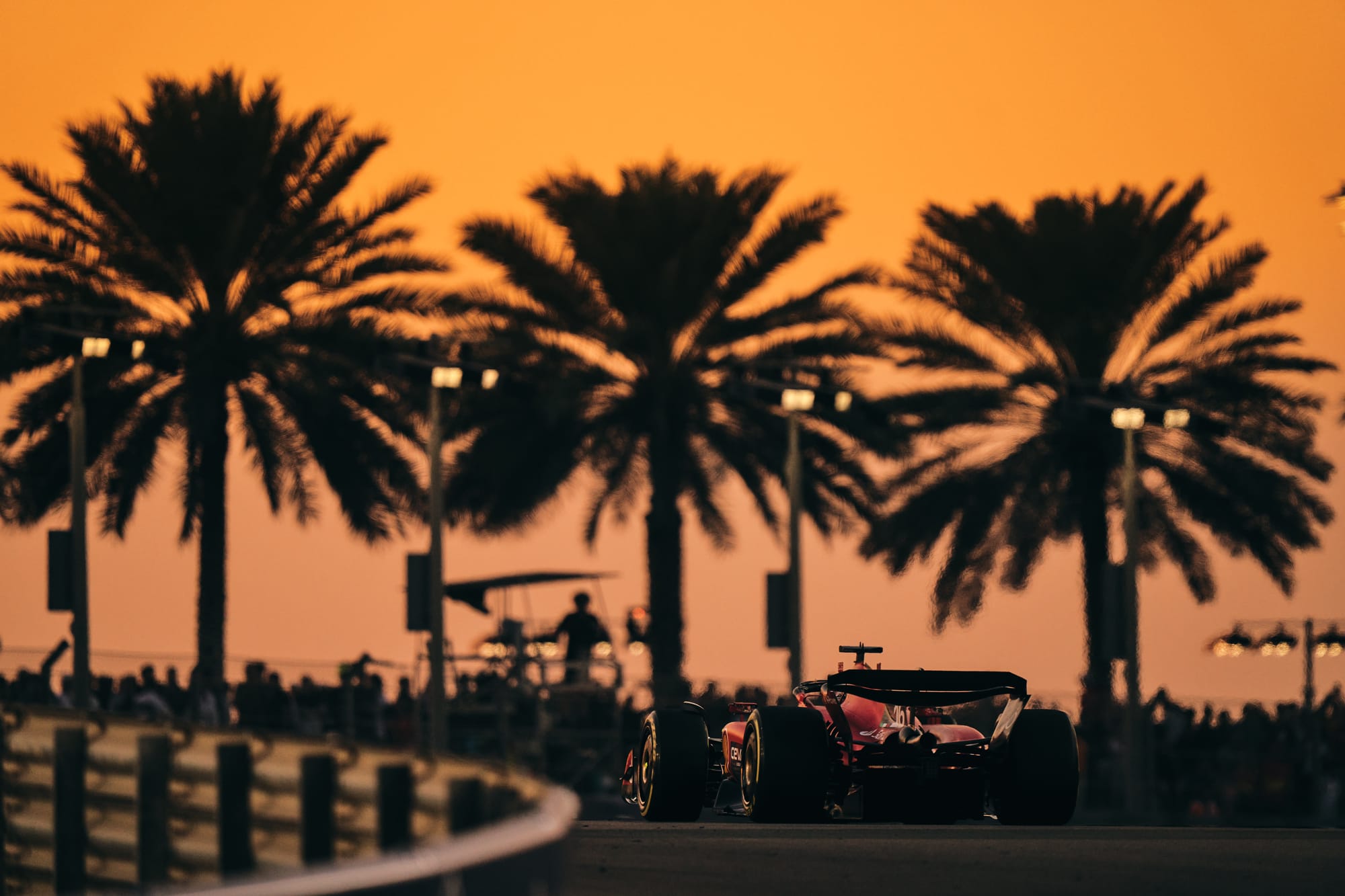
In Abu Dhabi last year, Charles Leclerc neatly summarised the duality of Ferrari’s season on paper and how its season played out in reality.
“To be honest it's been a disappointing season,” Leclerc said.
“We expected to come to try and fight for the championship, which after the first race we straight away understood how difficult it would be compared to the Red Bull that had done a huge step forward, especially in race pace.
“We didn't do the same step. So from that moment onwards, it was a bit disappointing.
“On the other hand, if you just look at the season - forget about last season - I think we've progressed quite a lot, which is positive and makes me confident for the future.”
It’s not always best to use statistics to measure a team’s progress, but having mentioned the negative 2022-to-2023 comparison, how about a counter?
Vasseur cannot be held responsible for the first part of the year given the car was conceived prior to his arrival and he inherited a team that seemed to lack confidence operationally and technically. He even joked in December: “Everybody told me, ‘You will see at Ferrari you will start the season very well and then it is going down’ - and trust me that after Jeddah or Melbourne, I said what the f***, if this was the good part of the season we will be in big trouble!”
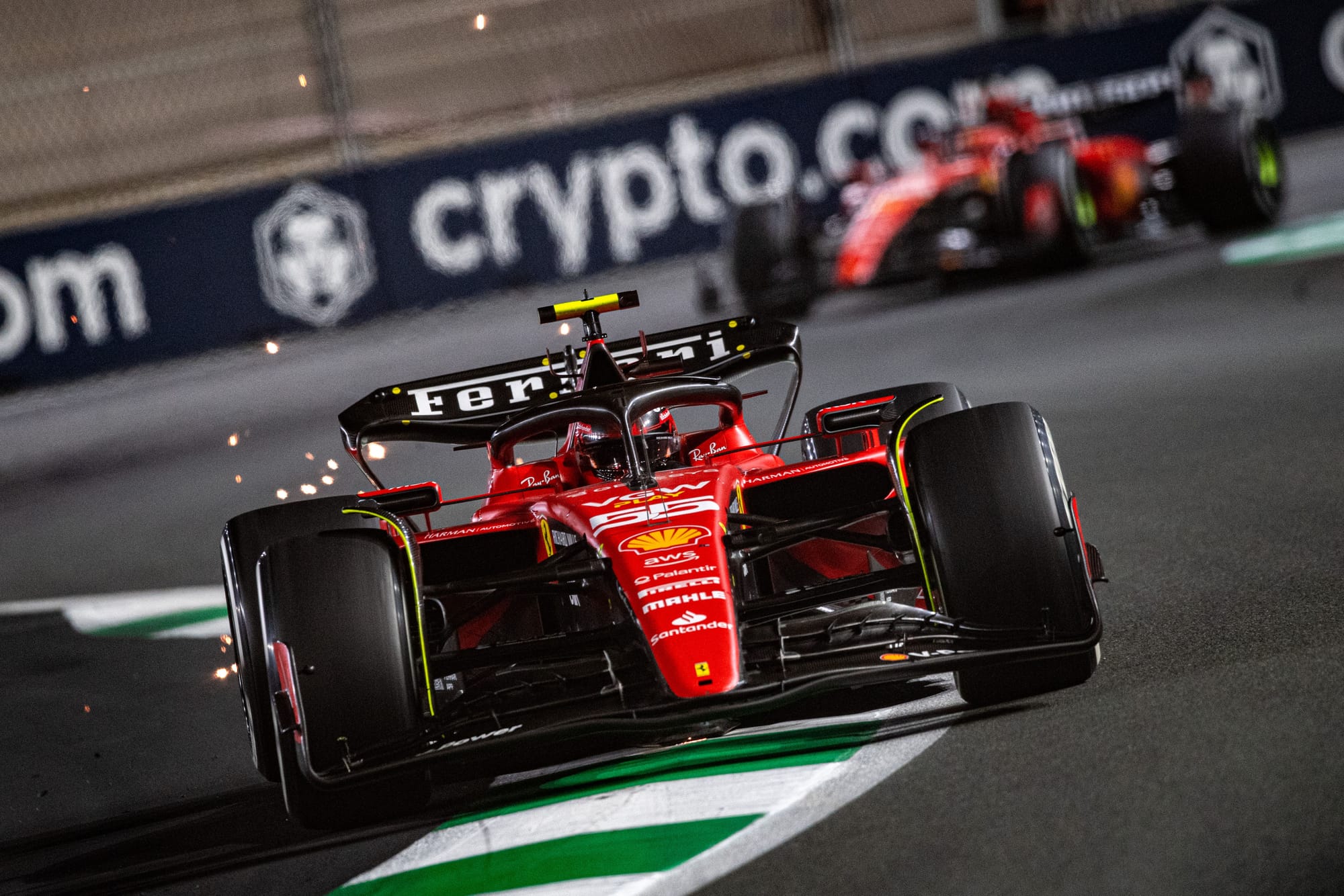
One season alone is not enough to transform a team. But Vasseur did invoke change through the year and the Ferrari he started to shape was a much better proposition in the second half of 2023.
Ferrari scored 20.1 points per grand prix as a team over the 10 races post-summer break, compared to 15.9 per grand prix in the first part of the season. Two poles in 12 events became five in 10. Three podiums became six. Ferrari even managed to win a race - the only non-Red Bull team to do so.
“The lesson is that we were able to react,” said Vasseur.
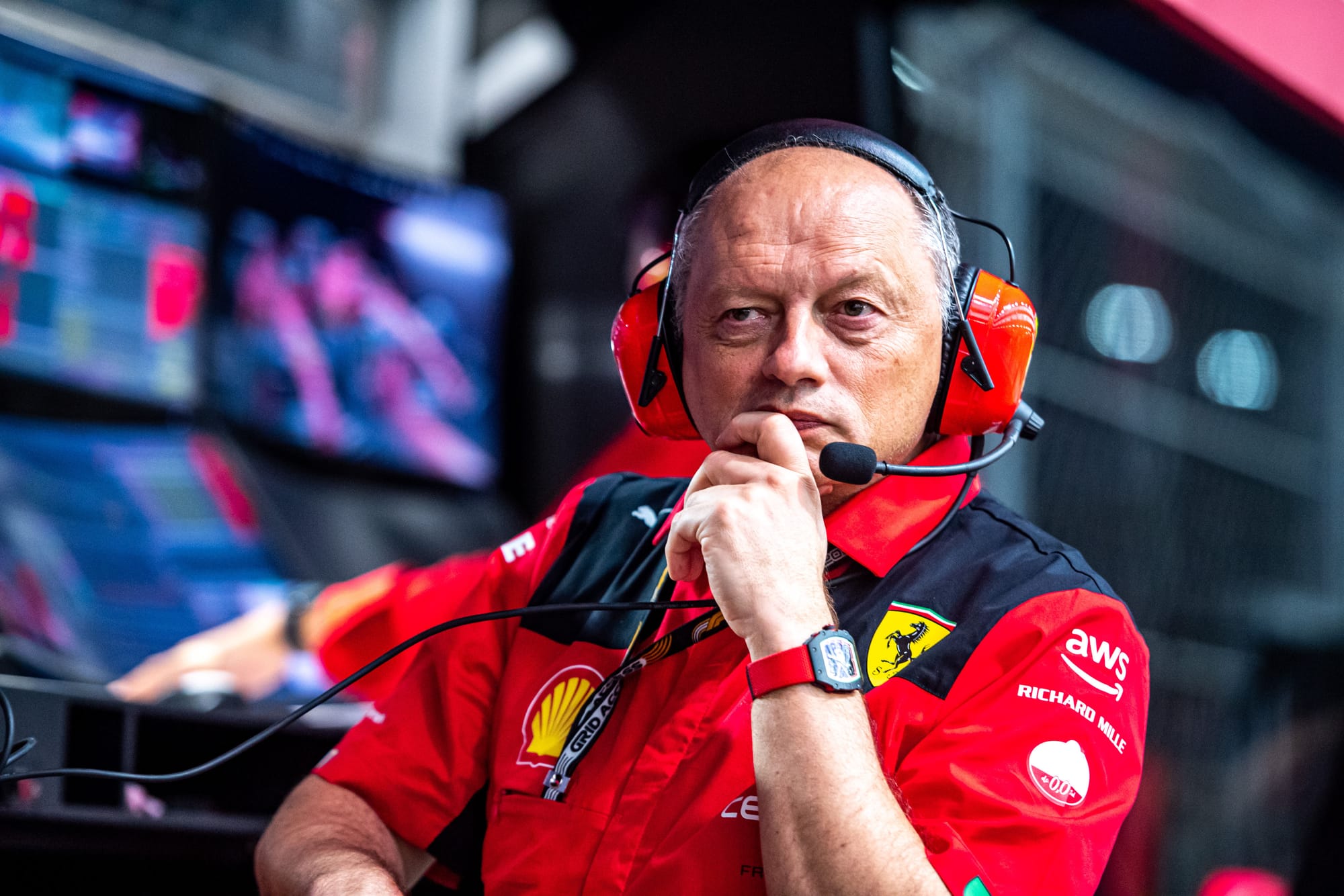
“The perception you have from an external point of view of Ferrari is probably wrong.
“When I was outside, I always thought the team will overreact to every single event. And the team was very, very calm.
“We were conscious of the situation and the weakness of the car but we had a good attitude to tackle it, we took it step by step.”
A MORE CONVINCING FERRARI
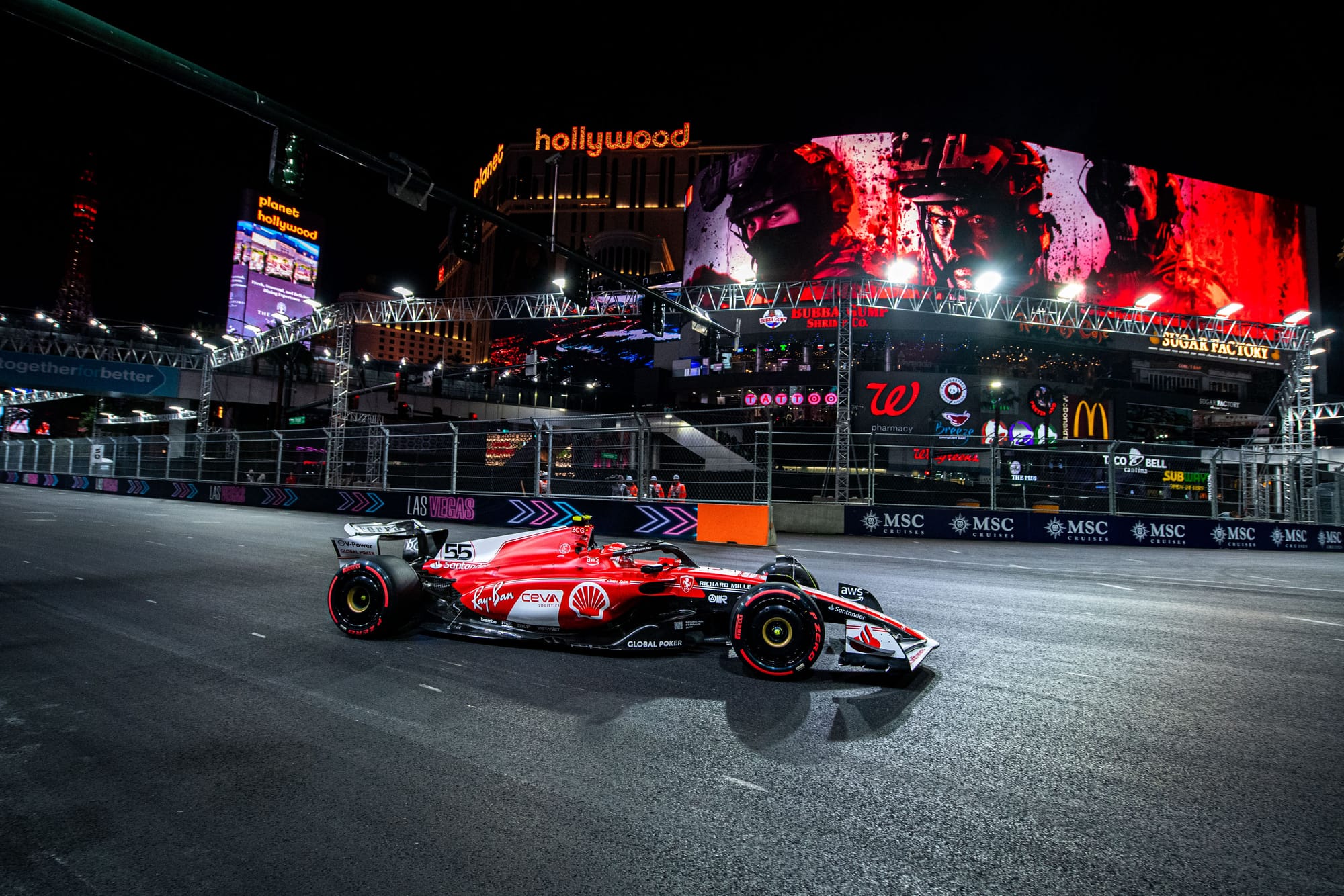
After the initial uncertainty about whether or not Vasseur would be able to run the team the way he wanted it, and that the changes that Ferrari needed would then follow, the back half of 2023 offers some tentative evidence in his and the team’s favour.
That is a valuable outward sign given the first few months of the season it was a little bit difficult really to believe that there was much changing.
Vasseur had moved things around early on, with some strategic personnel changes, and news broke in the opening months of the season that some key people wanted out (Davide Sanchez is joining McLaren while Vasseur’s number two Laurent Mekies will be the new AlphaTauri team principal). But then it seemed to be in a period of stasis, at least externally.
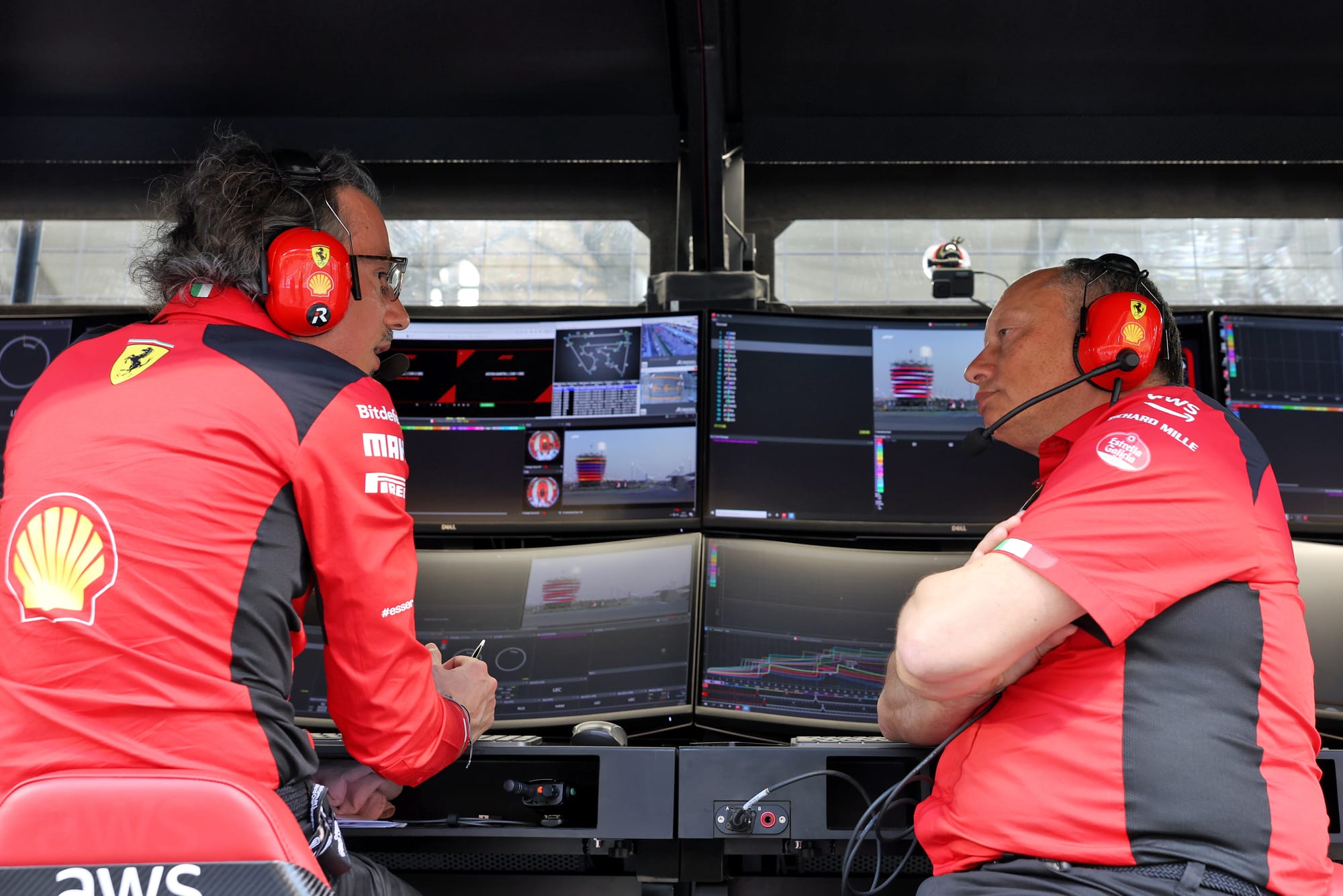
This was classic Fred. He isn't really into talking too much publicly. He prioritises actions and preaches patience.
His early point was always that you couldn't expect him to come in and turn things upside down, and that you couldn't expect improvements to materialise two or three months in. But by the end of the year, Ferrari looked like a calmer, more robust team. It made fewer strategic and operational mistakes, and had fewer reliability issues. It looked more convincing from the outside in terms of making the most of what it had.
“And it feels exactly that way also, on the inside,” Carlos Sainz said at the end of the season.
“We acknowledge the package we have, we understood it and we just put it on track and we try to maximise it every weekend. We are doing a much better job of that.”
Ferrari also delivered on something Vasseur pushed relentlessly early on when he, to the surprise of many, continued to insist that Ferrari was underperforming with a car it could get more out of without tearing the concept apart in-season.
OK, it was aided by healthy development, but that did happen in the second half of the year.
“I'm still convinced that it's more on the track operations that we did a step in the last third of the season rather than on the development of the car,” Vasseur reckoned.
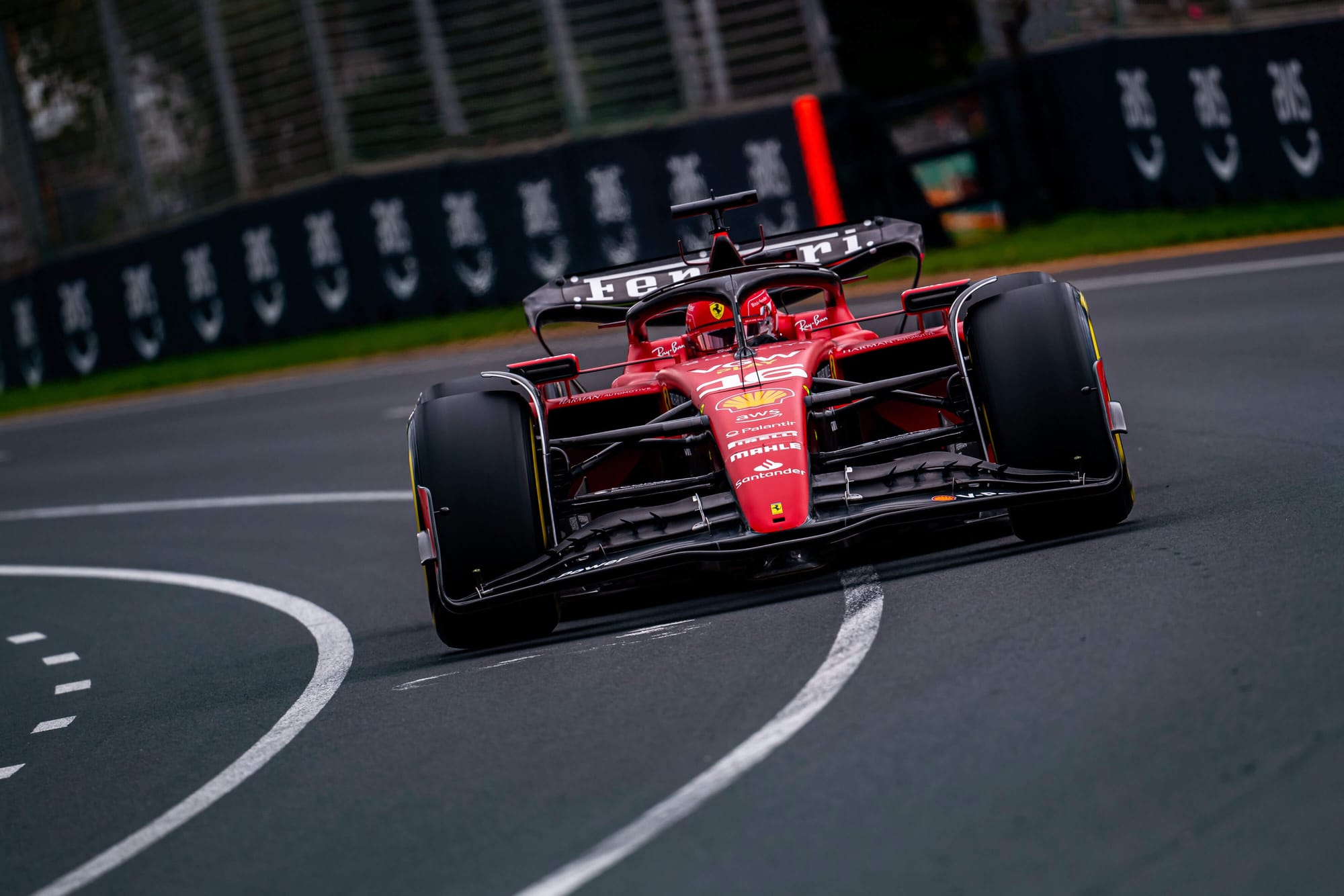
“We developed the car a lot in the first part of the season, and it took time perhaps to manage it properly. But I'm still convinced that in the last part of the season we were much more aggressive and it's a matter of tenths.
“When I say this, it's more aggressive on everything. You are making two hundredths here, two hundredths there, and at the end it's one tenth. On average during the season, the gap between us and the car in front of us was three hundredths of a second on the grid.
“That means if you do one tenth, it's two or three positions on the grid average.
“It's a matter of details and we paid much more attention to details at the end than at the beginning.”
Ferrari also specifically improved things for Leclerc - Ferrari’s star asset who really likes Vasseur, and whose fractious relationship with Binotto by the end of 2022 now feels like a distant memory. Leclerc seems to be on the brink of a new, lucrative, long-term Ferrari contract.
Winning back his faith in a season that looks like a step back on the surface is a major victory.
A CULTURE BREAKTHROUGH?
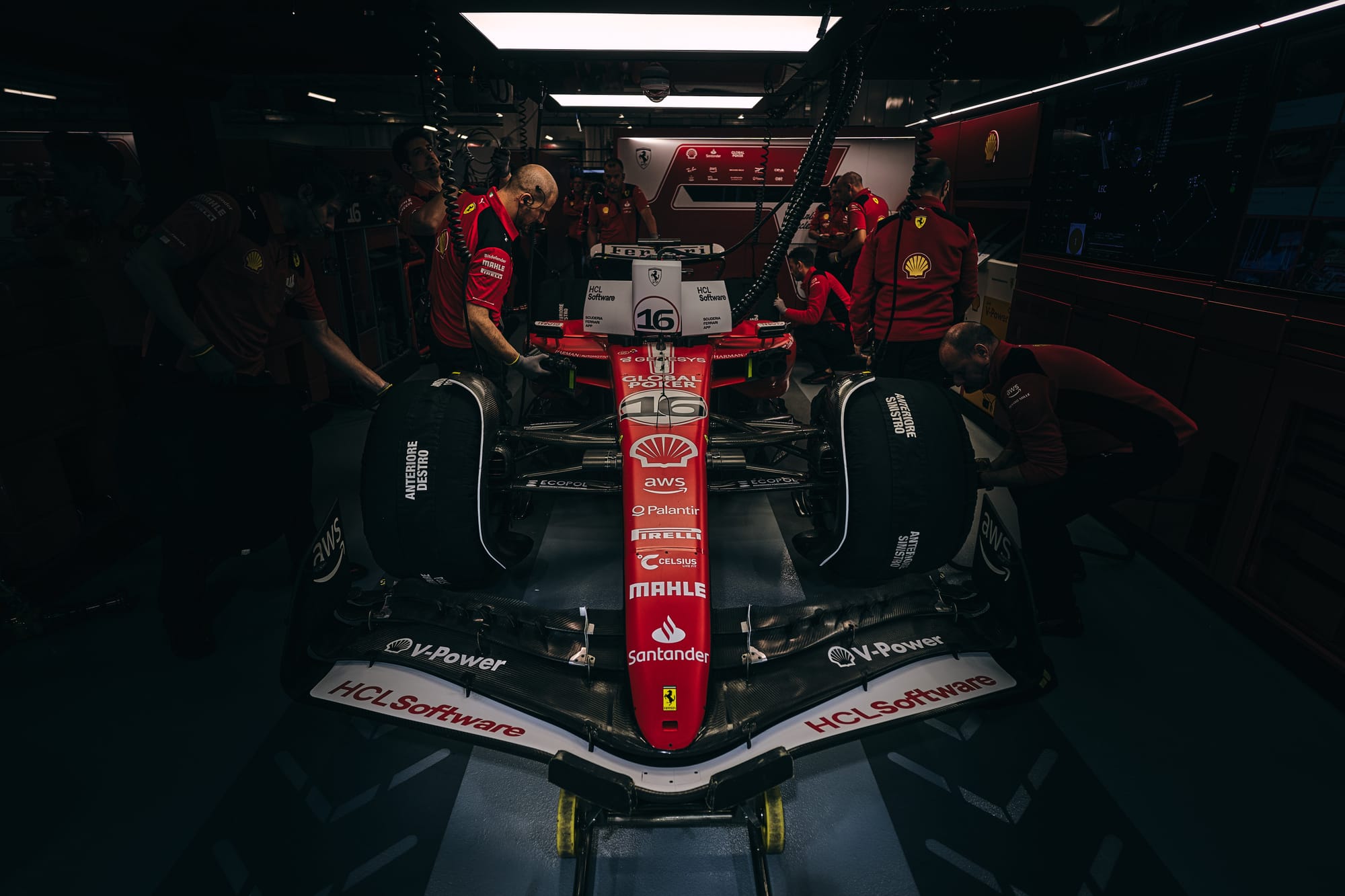
Vasseur was, and still is, playing a long game at Ferrari. Inevitably there was a lot of emphasis early on about getting the team to buy into his management and believing in the potential of the organisation.
It is easier said than done - just look at how much Binotto talked about culture. He seemed to make a sincere effort to avoid blaming people in the way Ferrari was guilty of previously but failed to engender enough accountability. Prior Ferraris pointed the finger at individuals. Binotto’s Ferrari shunned any kind of blame, which meant problems went unidentified and unaddressed. Vasseur’s Ferrari looks to be a healthier balance between empowering the workforce and eliminating mistakes.
“The first thing is to understand the team, and for this you need time and there is no secret,” said Vasseur.
“You have a group of people working together for years and when you arrive in this group you need to understand how the group is working before taking any action or decision.
“My job was more to back them on the fact that we have to be aggressive, that we have to take risks, that we have to be ambitious and to not be scared of any incident or something like this.
“We did a step on this. You always have to be at the limit and this culture is where Red Bull is very performant for me.
“They are used to being at the limit, used to being aggressive on every single topic and we have to take this direction.”
Perhaps the best indicator of the impact Vasseur has had internally is that Ferrari chairman John Elkann has waxed lyrical about what he has seen despite the lack of results.
In a rare interview, conducted with the BBC towards the end of 2023, Elkann said he “couldn’t be happier” with Ferrari under Vasseur, and called it a “much tighter, much closer” team this season.
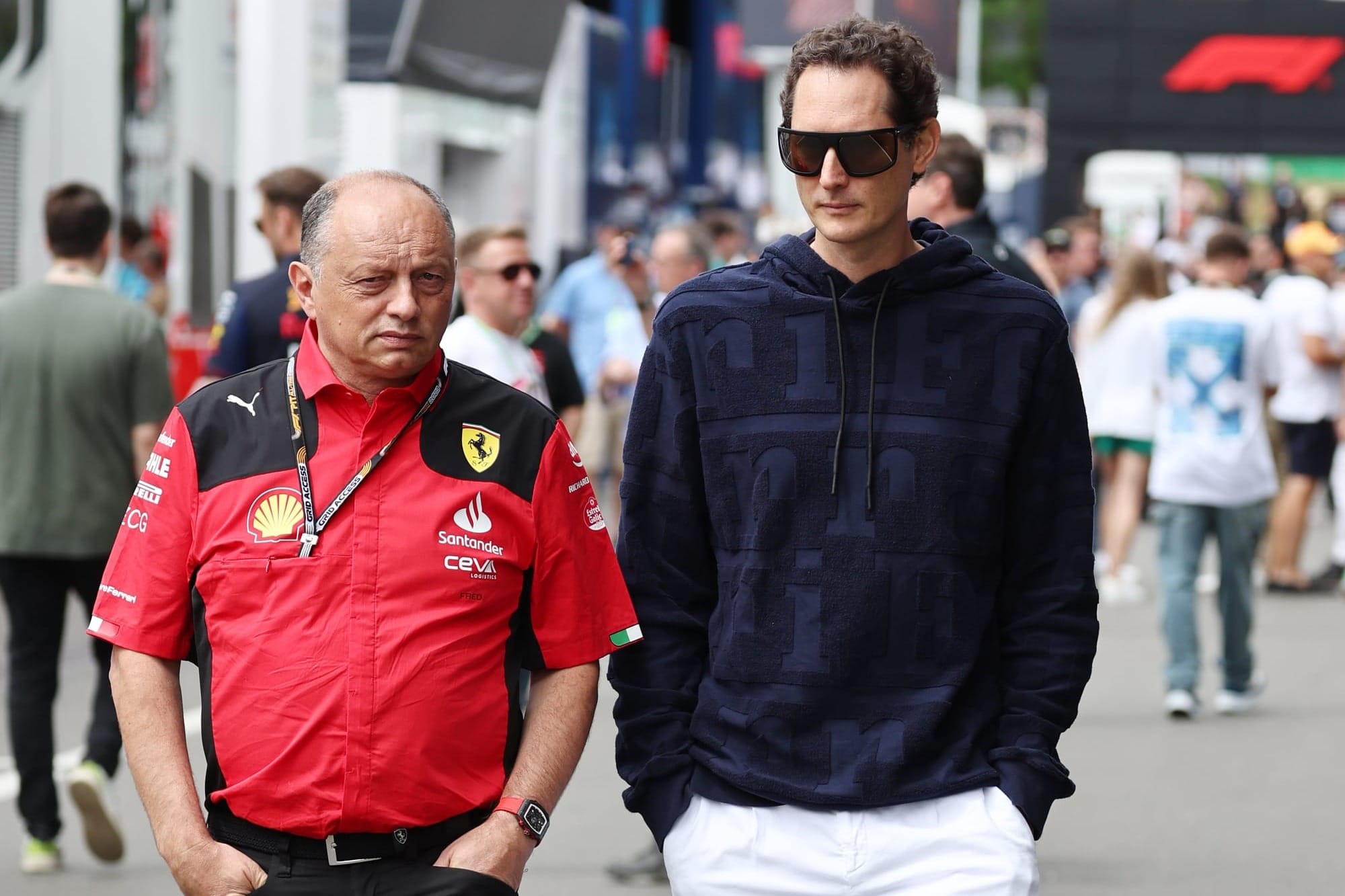
"Accountability is really one of the biggest determinants in what our competitors have achieved well,” Elkann said.
“And also nimbleness, despite their larger organisations.
"Fred had those attributes, having been working in motorsport all his professional life and having been very successful in different categories, but also in F1 having managed a smaller team.
"On one side he brings a culture of responsibility and accountability, but he also knows and has operated in organisations that are smaller, more effective and nimbler, and that is definitely something we were lacking compared to our stronger competitors."
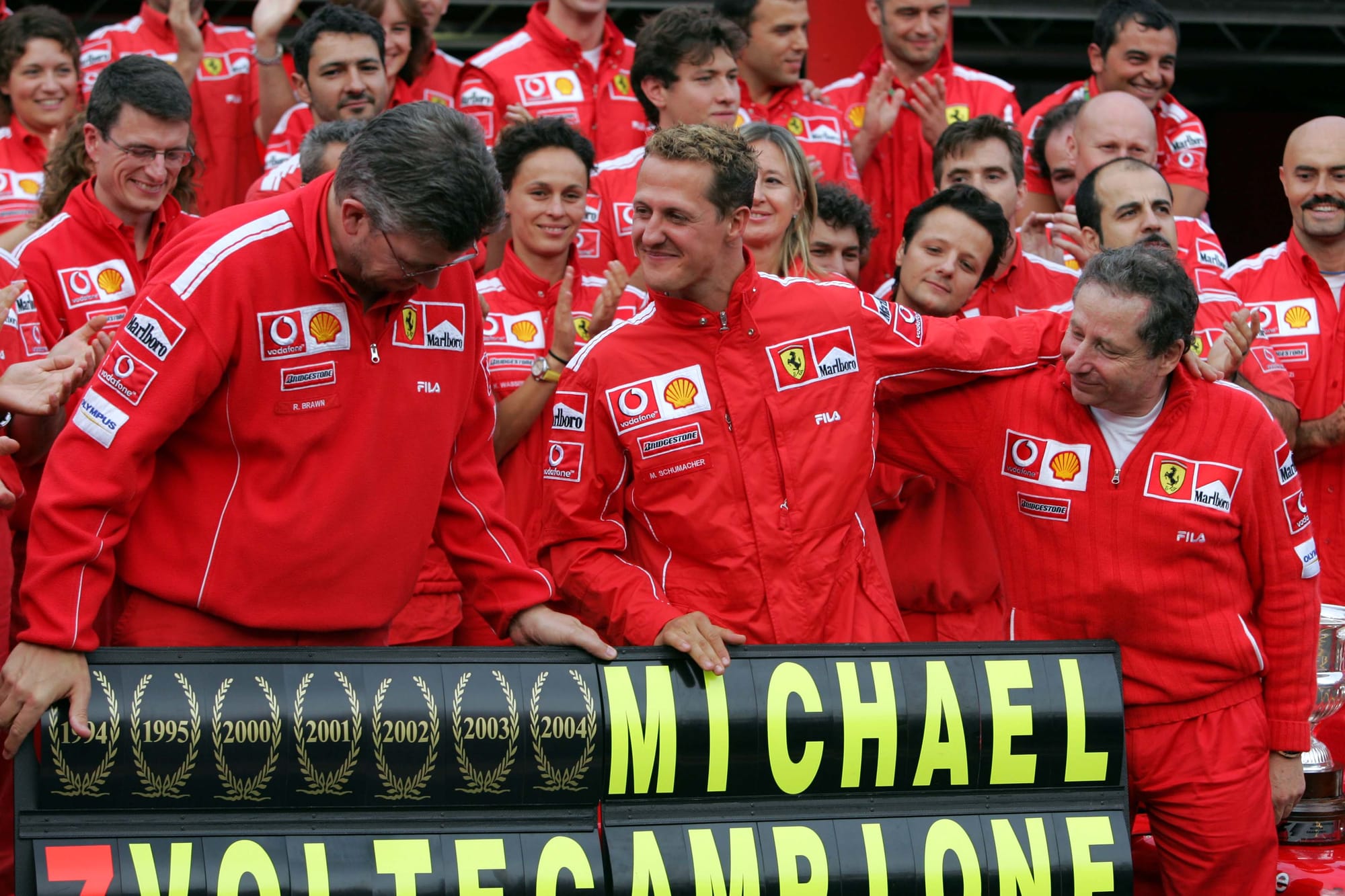
Elkann has also signified a potentially healthier way Ferrari is running things at the moment. He agrees that the last real period of success for the team, spearheaded by the Jean Todt/Ross Brawn/Michael Schumacher combination with Luca di Montezemolo a more distant chairman, was the result of a “very clear-functioning organisation”. Elkann linked that once again to “clear accountability and responsibility” - another hint at what he feels Ferrari has lacked in recent years and that Vasseur is addressing.
“We haven't had that culture since Jean Todt and then Stefano [Domenicali] were leading,” said Elkann.
“It just left us.
"It's not about blaming, it's about being responsible. And that was a major cultural difference that we had.”
1600 PERFORMANCE DIFFERENTIATORS
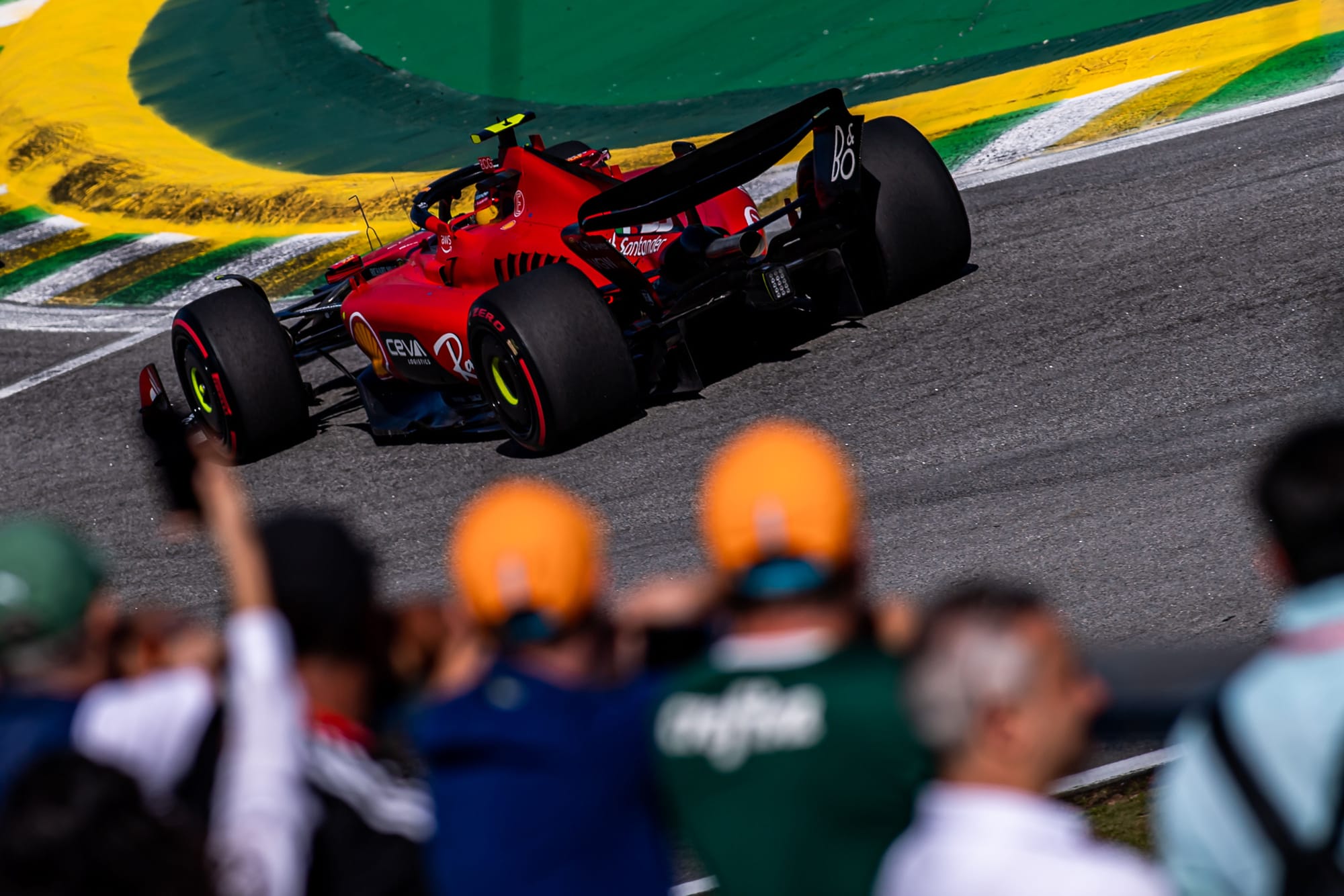
The jury's still out on how much Ferrari has changed and whether or not it has changed in the way that it needs to longer term. But the undeniable progress in 2023, in ways that Ferrari has not impressed for a long time like car development and team composure, suggests that Vasseur was getting more out of this organisation again.
That is a good foundation for 2024. Culture is not something that just changes overnight, but Vasseur keeps talking about this as a group of people who all believe they are performance differentiators. He would not be hammering home that point if he felt that's the same as what he inherited at the start of the year.
“The performance is coming from everywhere in the company, on the fact that we are able to produce parts quicker, on the fact that we have better reliability,” said Vasseur.
“We gave up too many points this season for different reasons, for reliability, for the disqualification in Austin, for impeding in qualifying.
“This is clearly where we have to work. And we have to improve on aero, on the engine, on every single topic.
“The most important thing is that the 1600 people that we have into the team are convinced that they are all performance contributors and that they are all trying to push the limit a bit.
“Even if it's for one thousandth of a second, if we have enough of them it’s a huge step.”
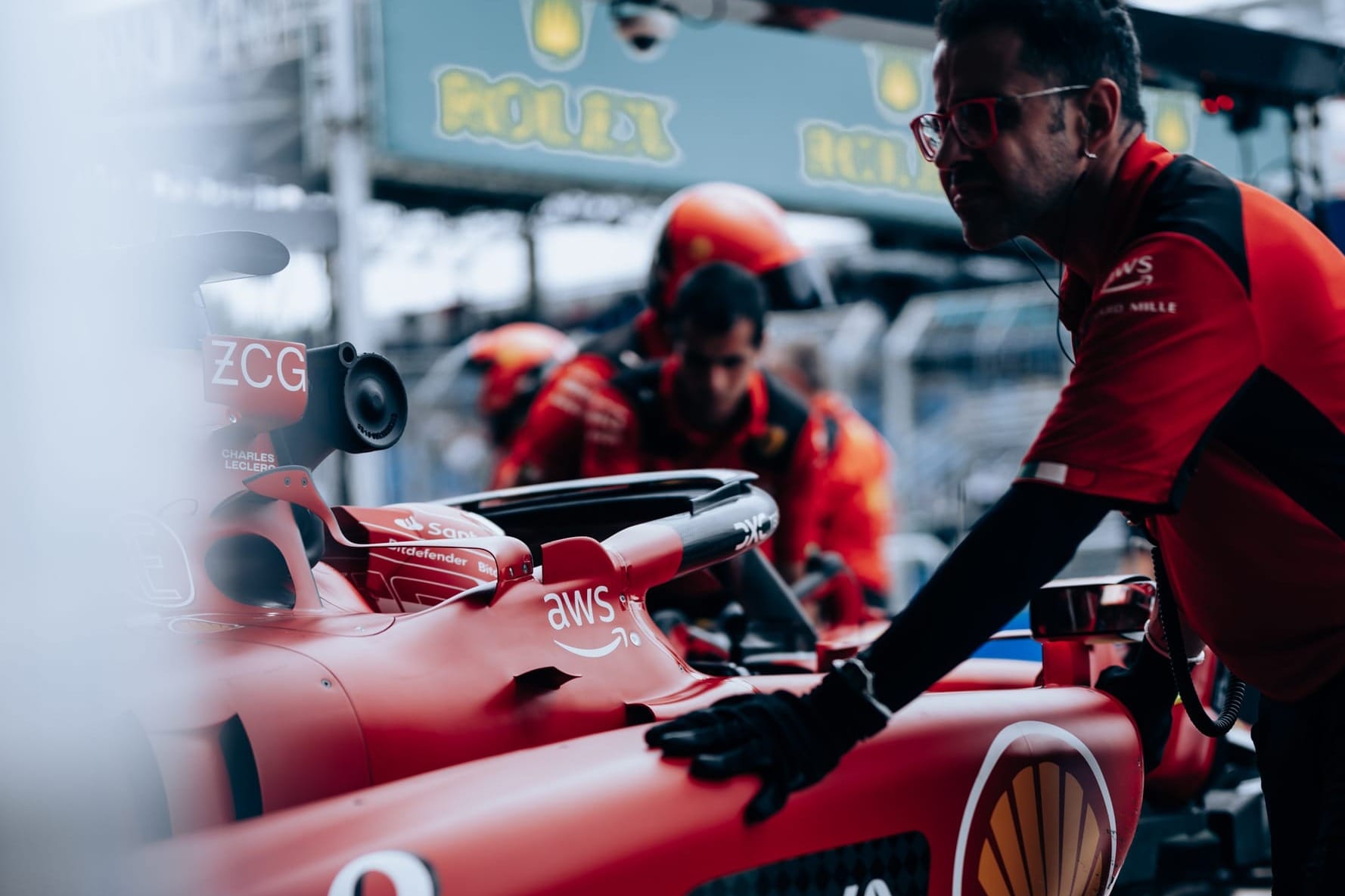
Getting the most out of people is what Vasseur has often been praised for in previous roles. And it may be exactly what Ferrari has been worse at previously.
At the same time, Vasseur recognised the need to invest in more talent. That process started months ago. But it will take a while for it to pay off.
“We already changed some people, but I'm not a big fan of communicating names,” said Vasseur. “I never did it and I won't do it.
“But it's not about one person or even me, it's more about the group. The most important is the group of people and I'm quite proud of the reaction of the team during the season.
“You always have to do individual changes in an organisation and we are doing it. We are recruiting a lot, but you know perfectly the system in F1 that you have a huge inertia due to the contracts in place.
“When you identify an issue, you decide to recruit, you have the process of recruitment and then the guy will join 12 months later with a six-month notice period, plus he will work on the car of the year after.
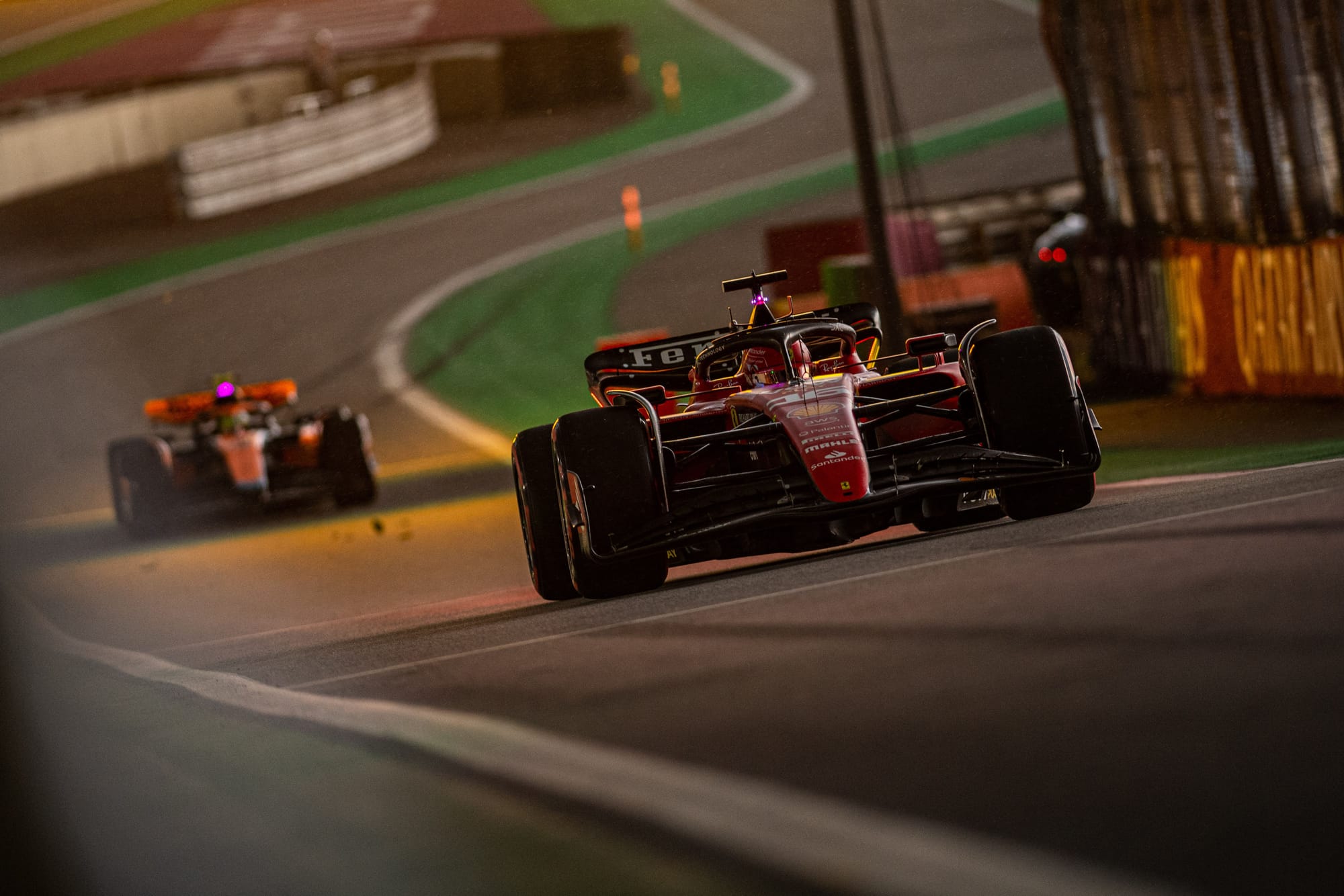
“It means very often you take a decision and the impact is the year plus two or plus three.”
Adding new, high-quality personnel to a better-performing organisation is obviously something to strive for. Ferrari has always been weaker than the sum of its parts and fixing that is the only way to deliver on its potential.
Maybe that is the path that Ferrari is finally on. Vasseur’s second season in charge will be a big test of the theory.
The next phase of the Ferrari recovery needs better results, and the mitigation of the weaker headline numbers of 2023 will not be afforded so generously in a year’s time.

